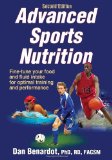In a nutshell:
Zinc is vital for growth, fertility and the immune system. Zinc is an important component of many enzymes.
In-depth:
The total amount of zinc in the body is about one to two grams. Zink is a component of many different enzymes which are involved in protein, fat and carbohydrate metabolism. In addition it is needed for the storage of insulin and for the formation of semen. Zinc also boosts the immune system.
Food should not be prepared or stored in zinc coated containers. Zinc salts form if the food acids come into contact with zinc. Zinc salts are toxic and can lead to corrosion of the gastrointestinal mucosa and vomiting.
Requirement, deficiency, oversupply:
Recommended intake according to the DGE* |
Age |
Male |
Female |
19 - 25 |
10 mg |
7 mg |
25 - 51 |
10 mg |
7 mg |
51 - 65 |
10 mg |
7 mg |
over 65 |
10 mg |
7 mg |
*Deutsche Gesellschaft für Ernährung - a German Nutrition Society.
The average intake of zinc in Germany is sufficient. Only 2.5% of the population have a zinc deficiency.
A zinc deficiency can affect the hormones as well as the activity of enzymes. Symptoms include a loss of appetite, impaired wound healing and increased risk of infection. Chronic intestinal illnesses and alcoholism can cause a zinc deficiency. Vegans are prone to zinc deficiencies.
An increased intake of zinc can cause an iron and copper deficiency. However, the threshold for zinc poisoning is relatively high. Acute zinc poisoning can cause gastrointestinal problems and chronic zinc poisoning can lead to anaemia.
top  |
Zinc in Food:
Zink is generally easier for the body to utilise if it comes from animal sources.
Foods rich in zinc include giblets, meat, dairy products, different types of fish and especially shell fish (mussels). Milling wheat can cause great losses of zinc as milling involves the removal of the shell of the wheat which contains a lot zinc.
Zinc in 100 g food:
Oysters: 16.0 mg
Wheat germ: 12.0 mg
Beef: 4.3 mg
Oatmeal: 7.7 mg
Cocoa : 4.9 mg
Egg yolk: 3.5 mg
Nuts: 3.4 mg
Oats: 3.3 mg
Rye : 2.6 mg
Wheat: 3.2 mg
Meat: 3.0 mg
top 

Prescription for Nutritional Healing, Fifth Edition: A Practical A-to-Z Reference to Drug-Free Remedies Using Vitamins, Minerals, Herbs & Food Supplements, Phyllis A. Balch CNC

Advanced Sports Nutrition-2nd Edition
Dan Benardot
|

